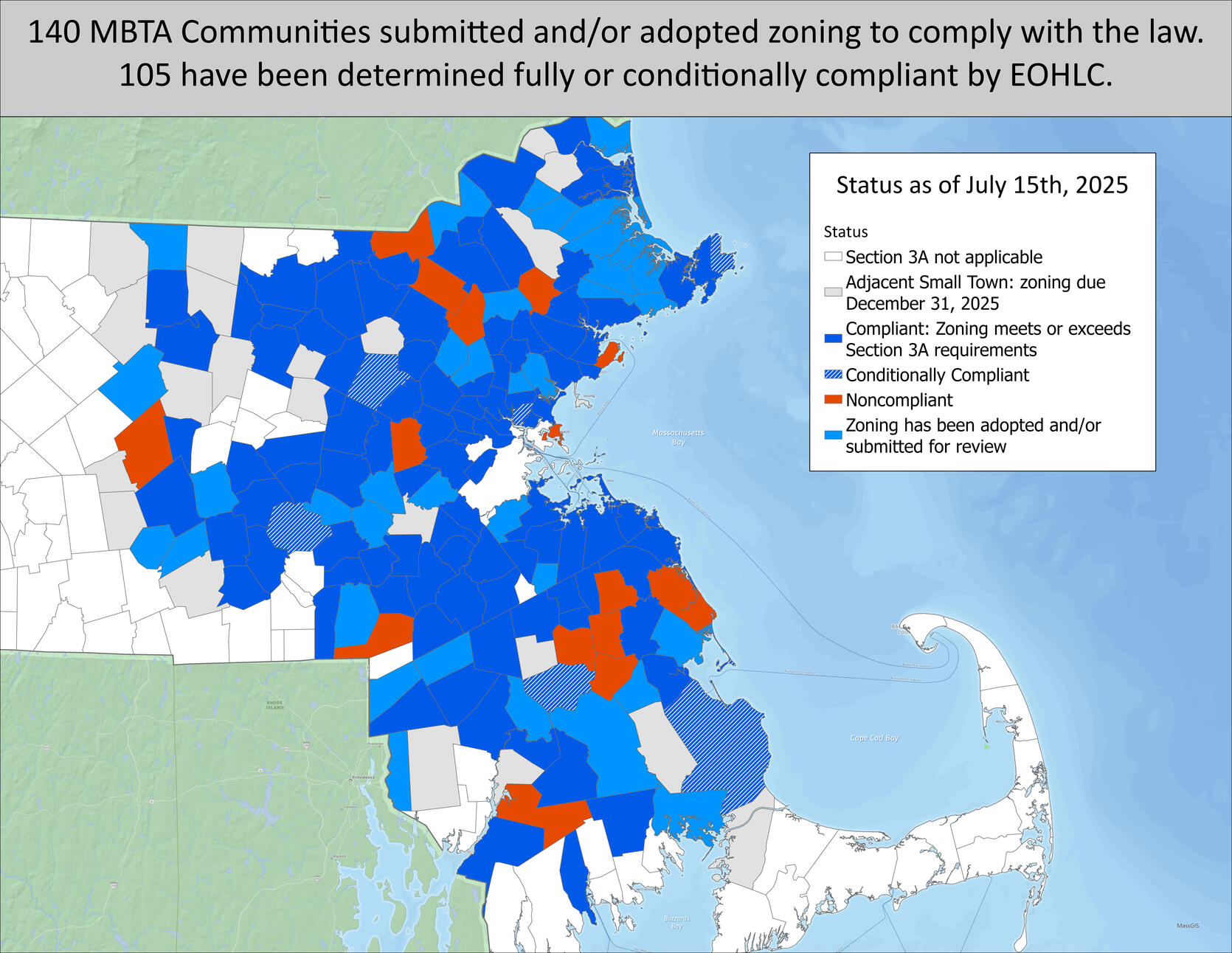With the state’s compliance deadline looming, Carver’s planning board is finalizing plans to comply with a controversial housing law that many of its members oppose.
The Carver Planning Board met Tuesday to discuss the MBTA Communities Act, a 2021 law signed by former Gov. Charlie Baker requiring 177 Massachusetts cities and towns, including Carver, to zone for multi-family housing.
“I think I’ve made it quite clear at every meeting that I oppose this, and the only reason why we even entertain this, for the most part, is just so that we’re in compliance with the state,” said Mari Ellen Williams, chair of the Planning Board.
The board met with representatives from Barrett Planning Group to determine sites to rezone for multi-family housing. The Barrett group is tasked with determining whether the sites identified by the planning board will properly comply with the requirements outlined in the MBTA law.
Communities were selected to rezone due to containing or bordering towns with rapid transit and commuter rail stops.
Carver is classified as an “adjacent small town,” according to the law. The town is expected to zone for 235 multi-family housing units, at a density of 15 units per acre, by the end of this year. According to the owner of Barrett Planning Group, Judi Barrett, zoned multi-family housing districts also cannot be under 5 acres. Carver also limits multi-family residential buildings to three stories in height.
The board recommended five potential sites across the town to Barrett’s company to evaluate: land around Spring Street Extension in North Carver; 30-32 West St. and 1-4 Meadowbrook Way near the center of Carver; 312-314 Tremont St. in South Carver; and 89-A Wenham Road near the Plymouth town line.
Planning board members mulled how to create a compliance model that would limit the development of multi-family homes in Carver, but still meet the state’s standards.
“I would like to create the most difficult location for a developer to come in and do something like this,” Williams said.
Planning board member Cornelius Shea suggested to Barrett separating the zoning into three areas to limit the impacts of potential developments in town due to the MBTA law.
“We’re one of the rural communities, one of the last small, agricultural communities,” Shea said.
During the discussion of which sites to include, Williams and resident attendees criticized the Healey administration’s decision to enforce the law.
“[Gov. Maura Healey] can’t even control the state,” Williams said. “So that’s why she’s trying to impose this on us, because if she had stopped these people from coming into our state who shouldn’t be here, we wouldn’t have to provide all this housing for them.”
Williams did not clarify which people she was referring to or provide evidence for this claim during the meeting.
Despite the criticism, the Healey administration has stood firmly in support of the MBTA law, which it claims will help lower housing costs and address the state’s housing shortage. Carver has until the end of the year to be in compliance.
The Barrett group will now determine whether these proposed sites comply with the state’s standards and report it back to the planning board for its meeting on Tuesday next week.
The planning board is also scheduled to meet again next week on Tuesday, August 12 at 7 p.m. in the Carver Town Hall.
In order for Carver’s compliance model to go into effect, it has to pass a public vote at a town meeting.
A special town meeting is scheduled for 6:30 p.m. on Tuesday, October 7 at Carver Middle High School and is set to include a vote on the town’s model for compliance with the MBTA law.
Contact editor Nick Mossman at nick@carverjournal.com


